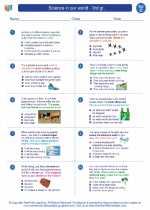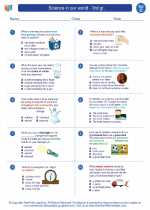Internal Medicine
Internal medicine is a medical specialty that focuses on the diagnosis, treatment, and prevention of adult diseases. Physicians who specialize in internal medicine, also known as internists, are equipped to deal with a broad and comprehensive range of illnesses that affect adults, and are experts in managing patients with complex health issues.
Scope of Internal Medicine
Internal medicine encompasses a wide range of medical conditions, including:
- Cardiovascular diseases
- Respiratory disorders
- Gastrointestinal diseases
- Endocrine disorders
- Infectious diseases
- Rheumatology
- Nephrology
- Hematology
- Oncology
- Neurology
- Dermatology
Study Guide
If you're studying internal medicine, here are some key topics to focus on:
- Anatomy and Physiology: Understanding the structure and function of the human body is crucial for diagnosing and treating diseases.
- Pathophysiology: Study the abnormal changes in function as a result of disease, and how these changes manifest in different organ systems.
- Pharmacology: Learn about the various drugs used to treat different medical conditions, their mechanisms of action, side effects, and interactions.
- Clinical Skills: Develop the ability to perform a comprehensive patient history, physical examination, and interpretation of diagnostic tests.
- Evidence-Based Medicine: Understand the importance of using the best available evidence to make clinical decisions for individual patients.
- Communication Skills: Learn effective communication with patients and their families, as well as with other healthcare professionals.
- Professionalism and Ethics: Understand the ethical principles and professional responsibilities in the practice of internal medicine.
By mastering these topics, you'll gain a solid foundation in internal medicine and be well-prepared to diagnose and manage a wide range of adult diseases.
Good luck with your studies!
.◂Science Worksheets and Study Guides Third Grade. Science in our world - 3rd gr.
Study Guide Science in our world - 3rd gr.
Science in our world - 3rd gr.  Worksheet/Answer key
Worksheet/Answer key Science in our world - 3rd gr.
Science in our world - 3rd gr.  Worksheet/Answer key
Worksheet/Answer key Science in our world - 3rd gr.
Science in our world - 3rd gr.  Worksheet/Answer key
Worksheet/Answer key Science in our world - 3rd gr.
Science in our world - 3rd gr.  Worksheet/Answer key
Worksheet/Answer key Documenting Data
Documenting Data 

 Worksheet/Answer key
Worksheet/Answer key
 Worksheet/Answer key
Worksheet/Answer key
 Worksheet/Answer key
Worksheet/Answer key
 Worksheet/Answer key
Worksheet/Answer key

The resources above cover the following skills:
History and Nature of Science: A student should understand the history and nature of science. A student who meets the content standard should:
Develop an understanding that historical perspectives of scientific explanations demonstrate that scientific knowledge changes over time, building on prior knowledge.
Develop an understanding that scientific knowledge is ongoing and subject to change as new evidence becomes available through experimental and/or observational confirmation(s).